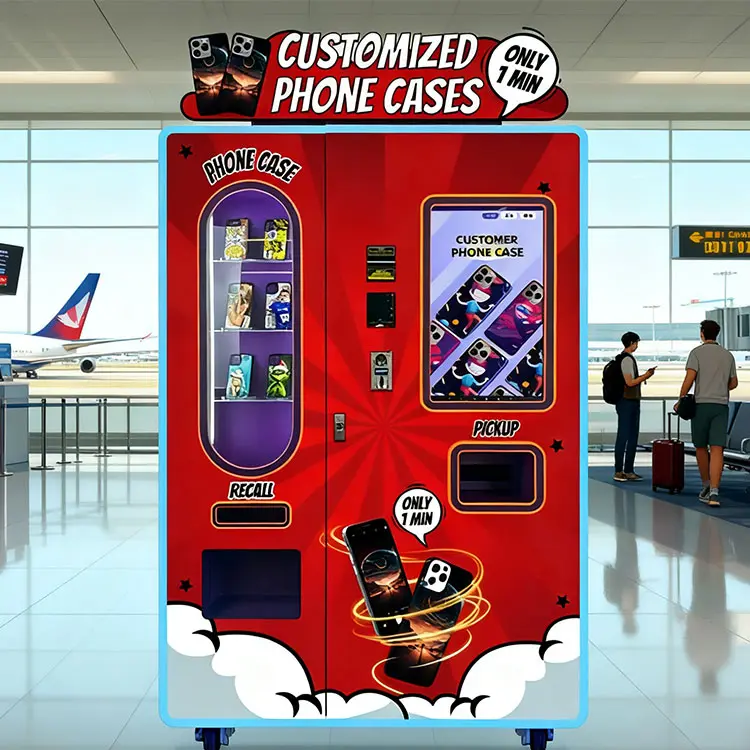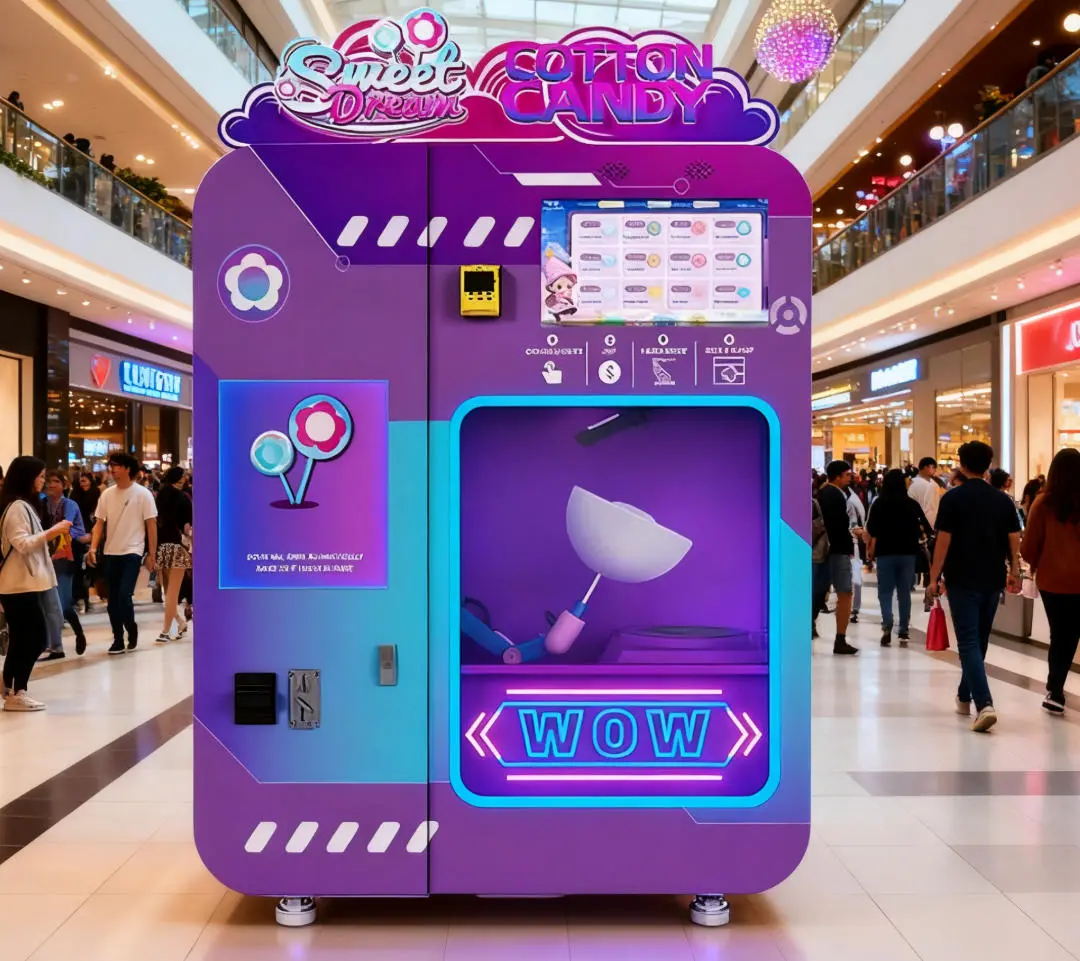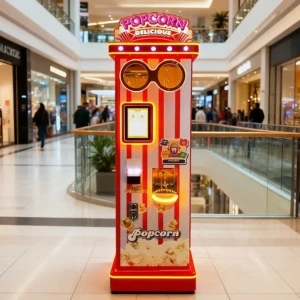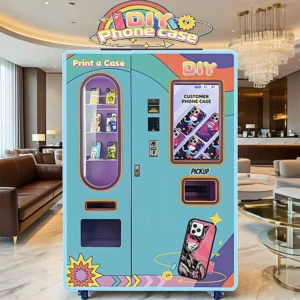The iconic American vending machine, a staple in break rooms, malls, and public spaces across the nation, represents more than just a convenience—it’s a potential revenue stream. But do these automated retail outlets actually turn a profit? The short answer is a resounding yes, but success hinges on critical factors like location, product selection, and operational efficiency. This comprehensive guide dives deep into the economics of vending machines in the U.S., analyzing profit potential, startup costs, and the innovative products that are driving the highest returns in today’s market.
The Economics of a Vending Machine Business
Understanding the financial model is key to answering whether American vending machines make money. It’s a business of volume and margins. A typical snack or soda machine might see average monthly revenues ranging from $200 to $500, but high-traffic locations can generate significantly more. Profit isn’t just about gross sales; it’s about managing the cost of goods sold (typically 40-50% of revenue), location commissions (10-25%), and operational expenses to ensure a healthy net profit margin, which can range from 10% to 30% for a well-run route.
Key Factors That Determine Vending Profitability
1. Location, Location, Location
This is the single most important factor. A mediocre machine in an exceptional location will outperform a state-of-the-art machine in a poor one every time. Ideal locations have:
- High Foot Traffic: Airports, hospitals, universities, and large office buildings.
- Captive Audiences: Places where people spend extended time and have limited alternatives, like factories, warehouses, and hotels.
- Relevant Demographics: Stocking energy drinks near a gym or healthy snacks in a corporate wellness center.

2. Product Selection and Pricing Strategy
What you sell is just as crucial as where you sell it. Traditional snacks and sodas are reliable, but the highest margins often come from innovative and specialized vending machines. Pricing must reflect the location, product uniqueness, and local competition. A bottle of water can be sold for $1.50 in an office building but may command $3.00 at a tourist attraction.
3. Machine Type and Technology
Modern machines with cashless payment systems (credit/debit cards, mobile wallets) can increase sales by 20-50% by accommodating consumers who rarely carry cash. Furthermore, telemetry systems that send stock alerts and sales data remotely reduce downtime and optimize restocking routes, saving time and money.
Startup Costs and Ongoing Expenses
To understand the profit, you must first understand the investment. A new, fully-featured machine can cost anywhere from $3,000 to $10,000+, while a used machine may be found for $1,500 – $3,000. Beyond the machine itself, operators must budget for:
- Initial inventory stock
- Transportation (vehicle for your route)
- Business licensing and insurance
- Location commission fees
- Regular maintenance and repairs
High-Profit Vending Machine Niches
While soda and snacks are the backbone of the industry, diversification is where many operators find exceptional growth. Here are some of the most profitable niches:
| Machine Type | Estimated Monthly Revenue | Key Advantage |
|---|---|---|
| Specialty Snack (Healthy/Organic) | $300 – $700 | Higher price points, caters to wellness trends |
| Fully Automatic Cotton Candy Vending Machine | $800 – $2,500+ | High impulse buy appeal, unique entertainment value |
| Phone Case Printing Vending Machine | $1,000 – $4,000+ | Extremely high margins on personalized products |
| Freshly Made Food (Pizza, Ice Cream) | $600 – $1,800 | Solves a meal-time need, not just a snack |

Case Study: The Power of Innovation in Vending
Companies like Wider Matrix are at the forefront of this profitability evolution. By focusing on R&D and cutting-edge technology, they have developed machines that go beyond simple dispensing. For example, their Fully Automatic Customize Phone Case Vending Machine allows customers to create a personalized case in under a minute, tapping into the massive demand for unique, on-the-spot products. This addresses a key profitability driver: offering something that cannot be easily replicated by a traditional store or online retailer, thereby commanding a premium price.
FAQs: Do American Vending Machines Make Money?
How much profit can I expect from a single vending machine?
Profit varies wildly. A typical snack machine in a decent location might net $50-$150 per month after expenses. A high-traffic or specialized machine (like a custom phone case machine or commercial cotton candy machine) can net $500 or more monthly.
What are the biggest challenges in the vending machine business?
The main challenges are securing prime locations (which often require paying commissions), managing inventory to prevent stock-outs or spoilage, handling machine maintenance, and the initial capital investment for quality equipment.
Are vending machines a good passive income source?
They are often mislabeled as “passive.” While they generate revenue without active hourly work, they require consistent effort for restocking, maintenance, and route management. It’s best described as a “semi-passive” business that scales well.
Is the vending machine industry growing?
Yes. The industry is evolving with technology. Cashless payments, interactive touchscreens, and the ability to vend fresh, high-quality, and customized products (like cotton candy or iPhone cases) are driving growth and attracting new customers.
How do I get started?
Start with research. Identify potential locations and secure permission. Then, choose a reliable machine supplier. Focus on a niche with good margins. Begin with one machine to learn the business before scaling into a full route.
What makes Wider Matrix’s vending solutions different?
Wider Matrix (gz) Technology Co., Ltd. distinguishes itself through a strong focus on R&D and technological innovation. They provide fully automated, customized software and hardware solutions for high-demand niches like instant Cell Phone Case Vending Machine units and cotton candy machines, which are designed for high reliability and profitability in diverse international markets, including the U.S.
Related Topics
- Most Profitable Vending Machines
- How to Start a Vending Machine Business
- Vending Machine Location Strategies
- Cashless Vending Technology
- Innovative Vending Machine Ideas
Conclusion
So, do American vending machines make money? Absolutely. They remain a viable and often lucrative business model. The path to profitability, however, has shifted. It’s no longer just about placing a machine and filling it with chips. Success in the modern vending landscape is achieved by leveraging technology, securing unbeatable locations, and most importantly, offering innovative products that provide unique value. For entrepreneurs looking to enter this space, partnering with an innovative technology provider like Wider Matrix can provide a significant advantage, offering cutting-edge vending machines designed for high margins and customer engagement in today’s competitive market.






Comments
No comments yet. Be the first to comment!